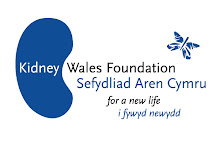NHS Wales News - Health Committee to carry out inquiry into presumed consentThe Welsh Assembly's Health, Wellbeing and Local Government Committee is to carry out an inquiry into the presumed consent of organ donation.The issues of organ donation and how to increase availability are underpinned by existing shortages of donors together with widespread health concerns from the government and medical profession that increasing numbers of older people and rising levels of obesity leading to diabetes and subsequently kidney failure will inevitably mean a growing demand for organs in the future.
Although the Assembly does not currently have legislative competence in this area, it could consider the possibility of seeking an LCO.
The Petitions Committee has already received two submissions calling for presumed consent, and Health Minister Edwina Hart has agreed to undertake public consultation on the issue.
The Committee has agreed to undertake its own inquiry looking at issues such as the possible legal framework for a system of presumed consent, the views of the public and interested parties, and how system in Wales would work in conjunction with the rest of the UK.
The Committee will meet on
Wednesday 30 January 2008 at 9am in the Senedd to agree terms of reference for the review and look at the legal position. It will also take evidence from Kidney Wales.
Jonathan Morgan AM, Chair of the Committee, said: "It is clear that something needs to be done to increase the number of organs available for transplant. A system of presumed consent may help but we need to look at all the issues involved including the practical issues for the Health Service and whether there are alternative ways of making improvements.
"This is a sensitive area and we will also want to ensure that moral, ethical and religious considerations are taken into account as well as the views of the public at large.
"I am confident that the Committee will carry out a robust and useful inquiry into presumed consent, taking the views of a wide range people as to whether this is the right way forward.
"Kidney Wales will be attending our meeting and I am looking forward to hearing their evidence as a starting point."







